The great contradiction within this trajectory is that as modern military establishments become more technological and exert greater political influence, they become less relevant to modern warfare as can be seen in
The creation of Africom also reflects contemporary concerns in
Significantly, Cindy Courville,
Furthermore, the long-running discussion within the Pentagon focused on Africa, most notably within the Army, suggests Africom, among other things, will be used to promote policies of “imperialist assimilation”, is predicated upon there being little if any resistance from the Congressional Black Caucus, and ultimately envisions reconfiguring the map of Africa in the interests of the U.S.
But during a recent television interview, newly minted four-star General William “Kip” Ward, the commanding officer of the Africa Command, said none of this. He placated the willingly naive interviewer, Charlie Rose, with the standard public information office nonsense.
General Ward, a man who creates the appearance of someone profoundly ignorant of anything having to do with
Africom’s role, he said, will include working with national armies to “professionalize” their security forces, it will help keep the region free of weapons of mass destruction, will promote governance that is humane, managerially competent and accountable, will aid in providing information and warning, and will help to maintain an un-threatened natural environment.
The only problem being, these missions already are being carried out through various military organizations, most notably the Africa Center for Strategic Studies at Fort McNair and various regional alliances, such as the Trans-Saharan Counter-Terrorism Initiative and the African Contingency Operations Training Program.
In addition to this, by the end of 2007 the
The Pentagon also operates a military base in
It is these numerous military relationships, designed to shape African militaries into reflections and appendages of the Pentagon, from which notions of imperialist assimilation flow.
This strategy is relevant to
The military therefore became the dominant social institution under independence and is seen by the outside world as the class with the most political power, if it chooses to exercises it.
So why Africom and why now?
Two reasons mostly.
In February of 2007, while it apparently escaped the attention of the mainstream media, oil imports to the
The second issue of fundamental concern to the
It has long been commonly believed the
However, if there is one single reason, almost equal in weight to all the others, that can be said to explain Africom’s existence -- it has to be the problematic
Nineteen African countries, most of them oil producers, stretching from
“The Gulf of Guinea offshore is one of the most prolific hydrocarbon provinces in the world, with oil and gas discoveries of more than 10 billion barrels and tremendous potential beyond that,” said Dr. Edmund Daukoru, then president of OPEC and currently Nigeria’s Minister of State for Petroleum Resources, speaking at a conference attended by 1200 oil industry executives and technicians last year.
The clear relationship between the creation of Africom and access to oil, natural gas, and other minerals necessary to the energy industry lends credence to the belief by many political analysts that the
Quiet in regard to these developments is the Congressional Black Caucus, that forum some in the Pentagon consider the most powerful grouping of Black politicians in the world. In a 1994 research paper written for the
The one exception to this norm is the CBC’s involvement with
In more recent times, New Jersey Congressman Donald Payne, who chairs the House Subcommittee on Africa and Global Health, and California Congresswoman Barbara Lee have been outspoken on Darfur, but as has been noted extensively elsewhere, suspicions abound as to the true nature of the Darfur issue and to the motives of
Apparently as a result of not having a sustained focus on foreign policy, specifically as it relates to Africa, with the exception of Payne, who made a brief and tepid statement of qualified criticism of Africom to Voice of America radio, CBC members have not, either individually or as a group, supported the large number of African nations that have rejected and criticized Africom’s formation.
Finally, and closely connected to the issues of Darfur and
For years, some African scholars, educated in the
This flies in the face of long-held common wisdom and rejects one of the fundamental underpinnings of the original Organization of African Unity, predecessor of the current African Union. That wisdom held that the national borders at the time of independence were to be inviolate.
With the granting of independence to
In 2005 another opportunity developed when the
Though the referendum is not scheduled to be held until 2011, already the
If southern
This then is typical of the long-range objectives of Africom, to use military power, whether U.S. or “assimilated” African militaries’, to help enforce the “democratic” restructuring of Africa, as may take place in Sudan and elsewhere, or to help bolster, by force if necessary, such vital oil producing “failed states” as Nigeria -- all in the name of national security.
(Dec. 24
MS/HG
END
MNA


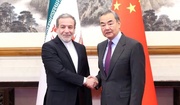
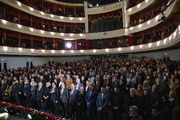

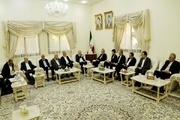
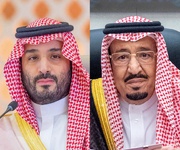
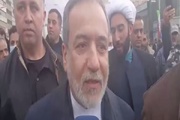
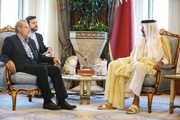
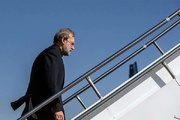
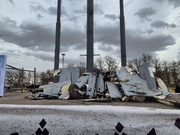





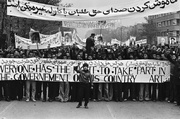




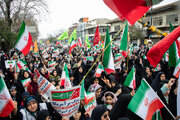
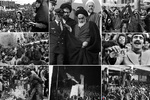
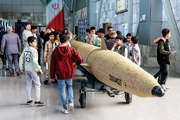

Your Comment